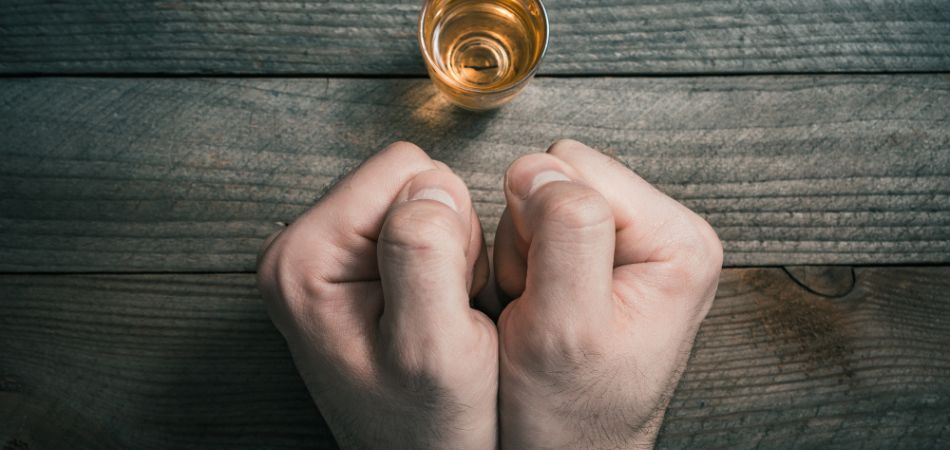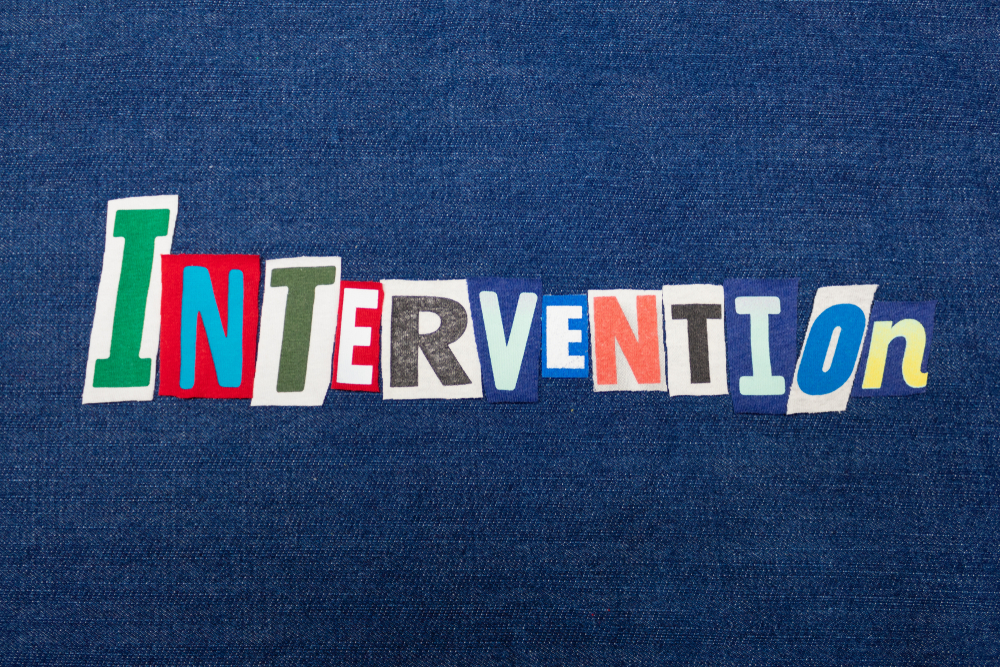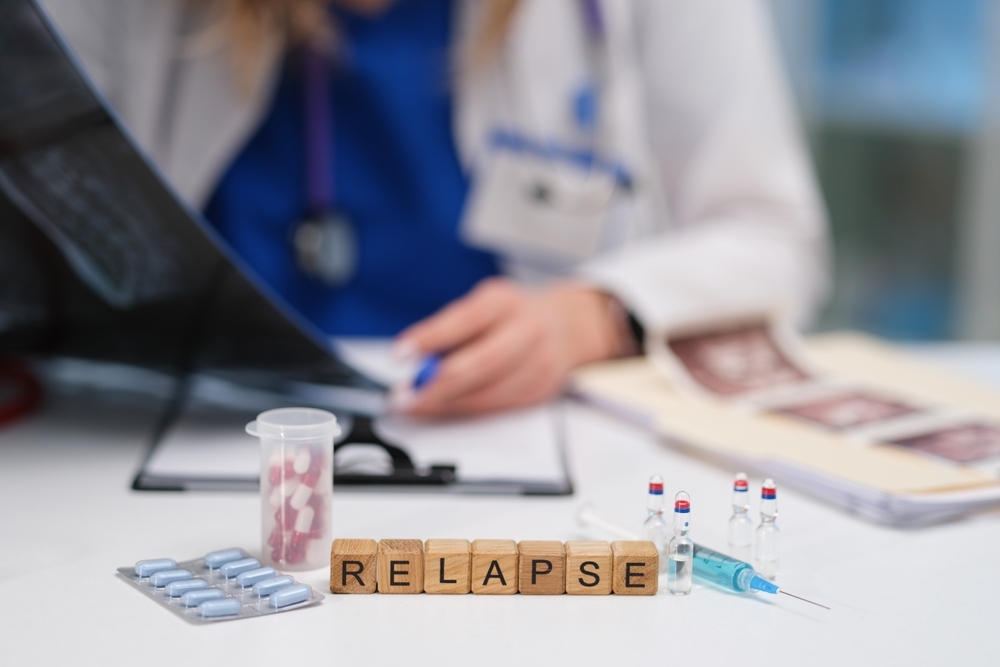
Written by:

Medically Reviewed by:
Last Updated:
June 11th, 2025
Alcohol Rehab | Alcohol Addiction Treatment
Alcohol addiction isn’t just about drinking too much; it’s about losing control over when, how often, or why you drink. It’s a physical and emotional grip that can make daily life overwhelming, strain relationships, and cause health issues to escalate quickly. Because alcohol is legal and always within reach, it’s easy to miss the moment when things go too far. But recovery is possible. With the support of Linwood House and our proven alcohol addiction treatment programmes, you can break the cycle and make a fresh start.
What is the need for alcohol rehab?
Alcohol rehab is crucial because recovery from addiction isn’t just about stopping drinking but about understanding why you started leaning on it in the first place. While alcohol detox can help clear your body, rehab helps with mental and emotional harm.
Rehab treatment gives you the space and support to explore what’s going on underneath the drinking. A lot of people’s alcohol use escalates because they’re overwhelmed, stuck in a routine where alcohol is the go-to escape, or they have been surrounded by drinking for so long that it feels normal. Alcohol addiction counselling and therapy help you take a step back from all that and start figuring out how to live without being constantly pulled back into the bottle.
How do I know if I need alcohol rehab?
Starting alcohol rehab as soon as possible gives you the best shot at lasting sobriety, but recovery is always possible, no matter when you begin. If you’re not sure whether your drinking has become a serious issue, keep an eye out for these signs:
- Only socialising when you know there will be alcohol
- Drinking in secret or making excuses to cover how much you’ve been drinking
- Getting moody, anxious or down when you can’t drink
- Drifting away from loved ones because drinking comes first
- Hurting yourself or others while under the influence
- Needing alcohol to fall asleep or get through the day
- Knowing alcohol is causing problems, but still drinking anyway
If these signs are becoming more apparent every day, Linwood House’s alcohol rehab programme can help you get back on track.
Inpatient alcohol rehab vs outpatient alcohol rehab
Alcohol rehab generally comes in two forms. Inpatient alcohol rehab means staying at a dedicated centre for the full course of treatment, while outpatient alcohol rehab means coming in for appointments and heading home again. Outpatient might seem like the easier option with no time off work and no major upheaval but when you’re still surrounded by alcohol or people who drink, it’s a lot harder to stay on track.
That’s why at Linwood House, we offer inpatient alcohol rehab and a calm, structured place to focus entirely on getting better. We believe this gives you the strongest foundation for recovery with support around the clock, shielding from negative influences and a team of people, many with addiction histories of their own, who are dedicated to your success.
What happens in alcohol rehab at Linwood House?
At Linwood House, our alcohol rehab programme blends the 12-step approach with evidence-based therapies and holistic support. Depending on your situation, you’ll stay with us from a fortnight to a few months, with each day thoughtfully structured to keep you grounded and engaged.
Mornings begin with a shared breakfast and then therapy, either in small groups or one-to-one, where you’ll start uncovering the emotional drivers behind your drinking. Afternoons include recovery workshops, reflective work with the AA Big Book programme or creative activities designed to help you reconnect with yourself.
But it’s not all hard work as we also provide opportunities for things like yoga, guided walks, fitness or just resting with a cup of tea and a good chat. It’s a balanced routine that nurtures every part of you so no stone is left unturned.
Some of the most important therapies and programmes used in alcohol rehab at Linwood House include:
- Cognitive behavioural therapy
- Dialectical behaviour therapy
- Trauma-based therapy
- Motivational interviewing
- Family therapy
- Yoga therapy
- Art therapy
- Sound therapy
Beyond alcohol rehab – alcohol relapse prevention
After alcohol rehab, it’s time to return to real life and Linwood House helps you make that leap with careful relapse prevention planning. Before you leave us, we will work with you to create an action plan for any eventuality. Some of the most effective relapse prevention strategies include:
Aftercare with Linwood House
To help with preventing relapse, Linwood House also offers free aftercare for all our clients after they leave us. Our aftercare programme gives you a full year of group therapy support designed to help you manage cravings and stay steady during life’s more difficult patches. These therapy sessions take place on an outpatient basis, making the transition from inpatient alcohol rehab to normal home life as smooth as possible. Our aftercare programme is 100% free for anyone who undergoes private alcohol rehab with us and can make a huge difference between recovery and relapse.
Linwood House’s Alumni Programme for life after alcohol rehab
In addition to taking part in aftercare, you will also join our Alumni Programme with all the other clients from Linwood House and our other private alcohol rehab centres. From fun events and message boards to endless resources, you will have everything you need to stay on track in the coming years. It is also a brilliant way to meet new people in recovery and keep each other inspired long after you leave Linwood House.
Start alcohol rehab with us today
If you’re ready to make a change, Linwood House is ready to help. Our alcohol rehab team will give you the guidance, care and support you need to stop drinking and start living. We can even help you stage an alcohol intervention if you have a loved one who needs help. Contact us today, and we’ll talk you through everything and help you begin your recovery with confidence.
Frequently asked questions
(Click here to see works cited)
- National Institute on Alcohol Abuse and Alcoholism (NIAAA). “The Cycle of Alcohol Addiction.” National Institute on Alcohol Abuse and Alcoholism (NIAAA), https://www.niaaa.nih.gov/publications/cycle-alcohol-addiction. Accessed 1 March 2024.
- NHS. “Alcohol misuse – Treatment.” NHS, https://www.nhs.uk/conditions/alcohol-misuse/treatment/. Accessed 19 April 2025.
- Moos, Rudolf H, and Bernice S Moos. “Rates and predictors of relapse after natural and treated remission from alcohol use disorders.” Addiction (Abingdon, England) vol. 101,2 (2006): 212-22. doi:10.1111/j.1360-0443.2006.01310.x
- UK Addiction Treatment Centres. “Alcohol rehab | Alcohol addiction treatment | UKAT.” UK Addiction Treatment Centres, 5 December 2023, https://www.ukat.co.uk/rehab-treatment/alcohol/. Accessed 19 April 2025.










